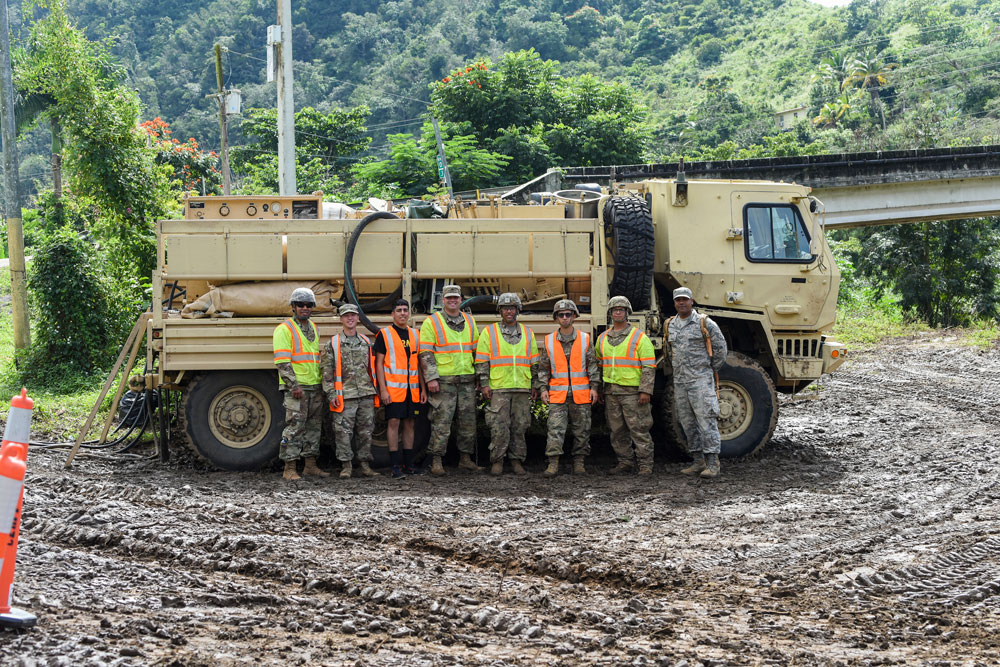
January 16, 2020; Colorlines, New York Times, and Washington Post
In 2017, Puerto Rico was devastated by Hurricane Maria. Nearly 3,000 people died, and its housing stock, roads, electrical grid, and other infrastructure were devastated. Less than a month ago, the forces of nature struck again—Puerto Rico began experiencing an ongoing series of tremors. Again, power failed and most of the island went dark. Schools closed, and thousands were afraid to sleep inside their homes. Power has since been restored, but many on the island remain on edge.
Last Thursday, weeks after the first quakes rocked the island, the Trump administration finally declared there was an emergency. It also announced it was now ready to release $16 billion it had been holding from funds previously allocated by Congress to help the island recovery from the damage wrought by Maria in 2017.
To get the money, Puerto Rico is being asked to agree to a number of “reforms” that have been absent from assistance granted to other communities that have suffered through natural disaster. The release of funding will be contingent on approval from a fiscal control board that’s appointed by federal authorities and is not accountable to the people of Puerto Rico. It will also need to create a new system to record and manage the details of property ownership. What’s more, it will not be able to pay local contractors the $15/hour wage rate that federal contractors would normally receive, superseding a federal executive order that has mandated that the $15/hour rate be paid for all federally funded disaster relief work.
Senator Chuck Schumer, the Senate minority leader, sees these restrictions as “onerous and unprecedented,” adding “insult to injury for our fellow Americans in Puerto Rico reeling from multiple natural disasters.” Representative Nydia M. Velázquez (D-NY), the first Puerto Rican woman elected to the House, asks, in an interview with the New York Times, “Why is Puerto Rico always subjected to different standards when it comes to this administration?”
Sign up for our free newsletters
Subscribe to NPQ's newsletters to have our top stories delivered directly to your inbox.
By signing up, you agree to our privacy policy and terms of use, and to receive messages from NPQ and our partners.
Federal aid to Puerto Rico in the aftermath of Hurricane Maria has long been starkly deficient, with billions allocated by Congress yet to reach the island more than 28 months after the hurricane hit.
The Trump administration has frequently cited concerns about Puerto Rican corruption as the reason that they have been slow to come to the island’s aid. As NPQ’s Steve Dubb, writing before the recent earthquakes hit, wrote:
White House aides claim the slowness of aid to Puerto Rico in part is due to the existence of 375 public corruption convictions between 2008 and 2017, but that figure, notes the Times, was driven largely by a federal investigation into Puerto Rico’s police force in 2011. Yet, “during the same time frame, Texas had almost 1,000 public corruption convictions,” which hasn’t stopped Texas from having 3,700 funded requests compared to Puerto Rico’s 190.
When natural disasters strike, the federal government has a responsibility to step forward with both financial and moral support, so that lives and structures can be rebuilt. But as Julio Lopez Varona, co-director of the Center for Popular Democracy, explained to Colorlines, when it comes to Puerto Rico, this responsibility stops when disasters hit. “There are kids sleeping outside, families without running water, and a grid that continues to provide unreliable power. The politics of recovery have once again proven to benefit Wall Street, bondholders, and a racist administration. “
Unfortunately, the national attention span is short. Puerto Rico needs a large, long-term commitment to rebuild and recover. Even if the long-promised $16 billion finally flows, much larger sums may be required to fully complete the work, and that will depend on our not losing sight of the human need that remains.—Martin Levine











